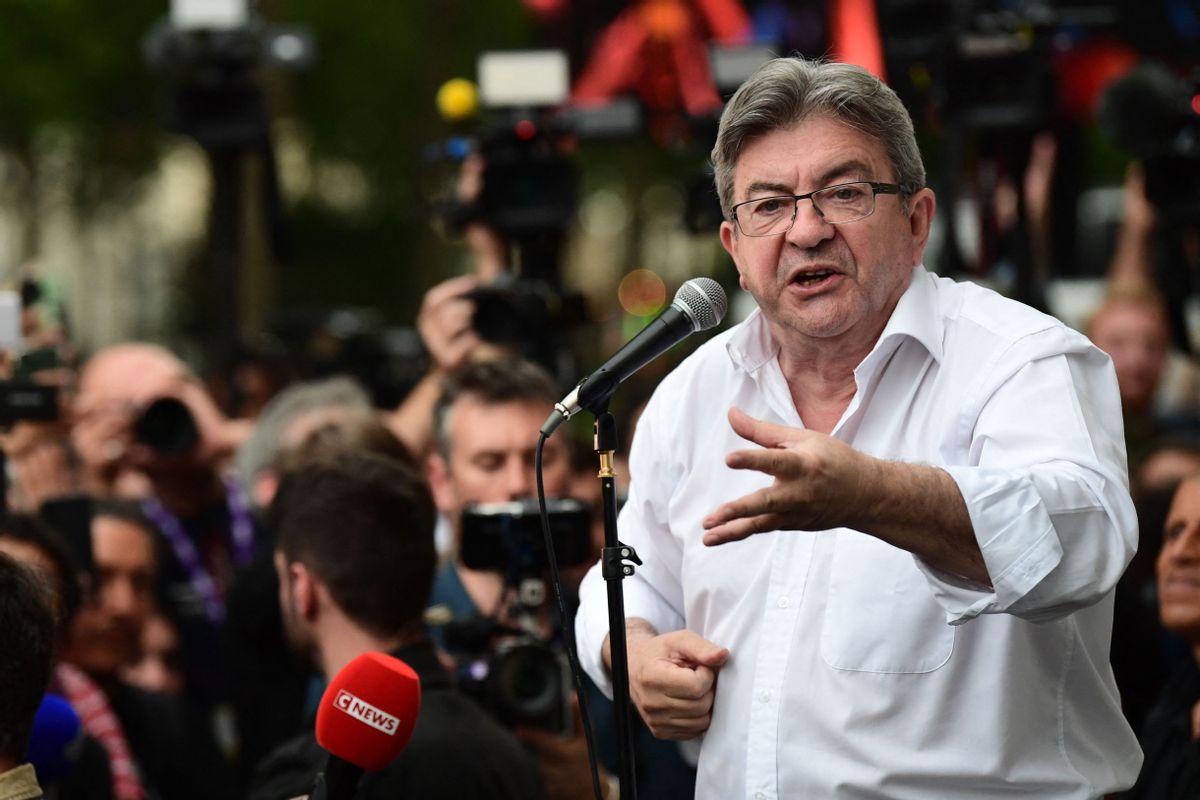France's new left-wing coalition picked up enough votes during Sunday's legislative elections to help deny President Emmanuel Macron the absolute majority he needed to ram through his unpopular austerity agenda.
Macron's neoliberal alliance Ensemble won the most seats in the National Assembly with 245, but fell well short of the 289 needed to control parliament.
Meanwhile, the New Ecological and Social People's Union (NUPES) — the recently formed coalition led by leftist MP Jean-Luc Mélenchon — won 131 seats, more than doubling the combined number of representatives that its four parties had in 2017.
NUPES, which brings together Mélenchon's France Unbowed, the center-left Socialist Party, the French Communist Party and the Greens, campaigned on lowering the retirement age from 62 to 60, hiking the minimum wage and freezing prices on essential products — in sharp contrast to Macron's alliance, which is trying to raise the retirement age to 65 and has reduced the corporate tax rate, exacerbating economic inequality and insecurity.
RELATED: Paris is burning — and London too: World War IV and the crisis of democracy
"The rout of the presidential party is complete and no clear majority is in sight," Mélenchon told a cheering crowd of supporters in Paris on Sunday night. "It is the failure of Macronism and the moral failure of those who lecture us."
Clémentine Autain, one of Mélenchon's top allies, said that the election results vindicate the left's strategy and reflect "a gathering of the forces for a social and ecological transformation on the basis of a profound change of society."
Although the strong showing by NUPES has made it the largest opposition force in parliament, which will enables it to chair the assembly's key finance committee, the far-right National Rally picked up 89 seats and has claimed a position as the largest single opposition party.
National Rally's record showing, which its president, Jordan Bardella, called "a historic breakthrough," represents an 11-fold increase in representation for the xenophobic party of presidential runner-up Marine Le Pen.
Want a daily wrap-up of all the news and commentary Salon has to offer? Subscribe to our morning newsletter, Crash Course.
In addition to pushing a pro-corporate agenda, Macron's pursuit of anti-immigrant and anti-Muslim policies has legitimized Le Pen's reactionary ideas, progressive critics say.
Some of Macron's allies portrayed National Rally and NUPES as equally extremist. Mélenchon, by contrast, instructed his supporters to "not give a single vote" to the far right after he finished just behind Le Pen in the first round of April's presidential race, thereby helping Macron win the runoff.
The mainstream conservative party Les Républicains picked up 61 seats, and those members are "likely to become kingmakers," Reuters reported, as Macron's center-right majority seeks out potential allies to overcome France's first "hung parliament" since 1988.
If Macron is unable to form a stable alliance with Les Républicains, who have a platform "more compatible with Ensemble than other parties" and could give the president an outright majority, he will be forced to "run a minority government that will have to negotiate bills with other parties on a case-by-case basis," Reuters noted.
Christian Jacob, leader of Les Républicains, said his party "will remain in the opposition but be 'constructive,' suggesting case-by-case deals rather than a coalition pact," the news outlet added.
Macron's government is not confining its search for possible legislative friends to the right.
According to Agence France Presse, "Senior Macron officials were on Sunday already trying to drive a wedge through the different factions of the NUPES alliance," accusing France Unbowed of being too rigidly radical and adversarial in a bid to peel off more moderate Socialists and Greens.
"There are moderates on the benches, on the right, on the left," said government spokesperson Olivia Gregoire. "There are moderate Socialists and there are people on the right who, perhaps, on legislation, will be on our side."
If legislative gridlock persists, Macron could eventually be forced to call a snap election.
Read more on political turmoil in France:



Shares